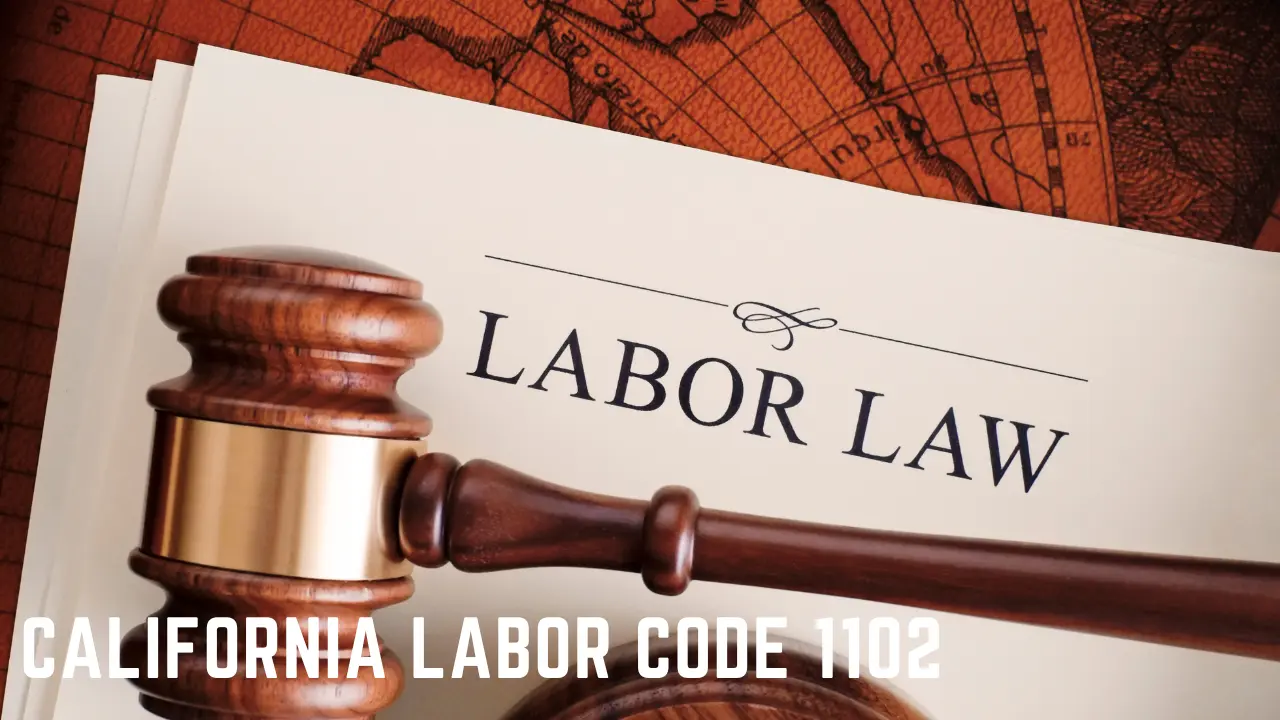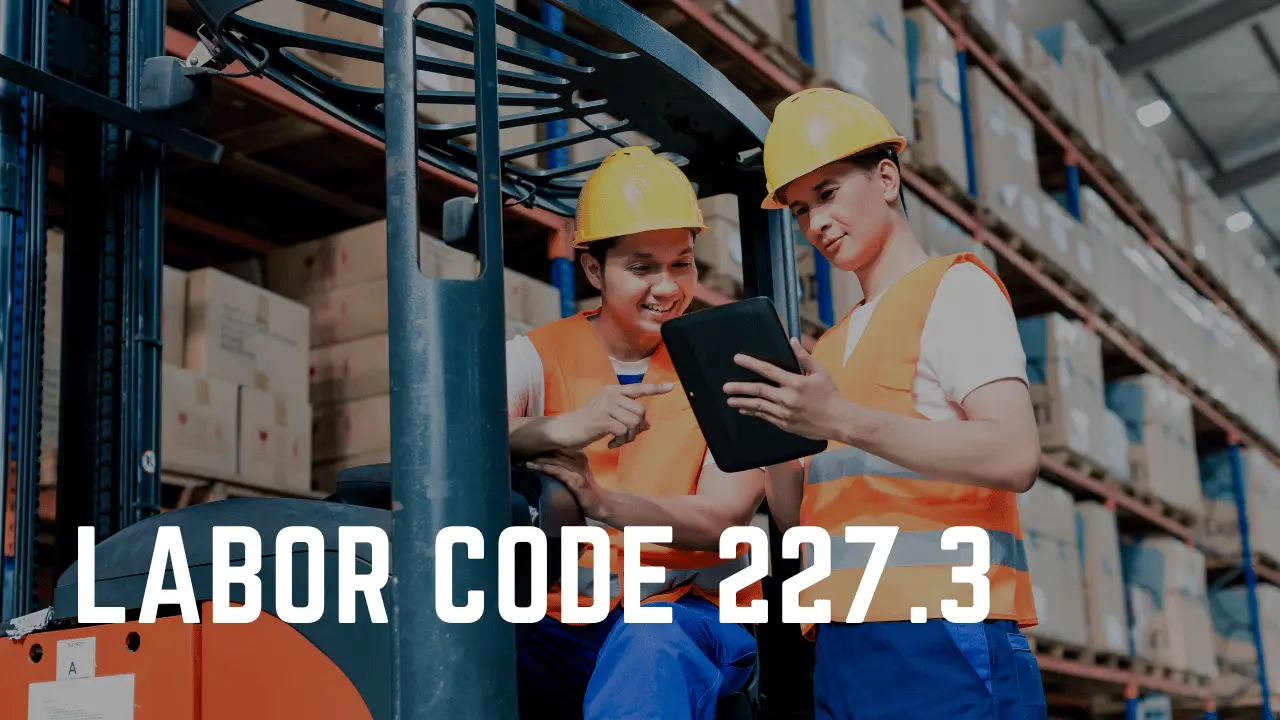Table of Contents
ToggleThis legislation, while seemingly straightforward, has profound implications for both employers and employees, shaping the dynamics of their interactions and potentially setting the stage for significant legal consequences. As we delve into the nuances of this law, it’s essential to understand the subtle complexities that underlie its enforcement and the broader implications it carries for the workplace environment.
Prohibited Employer Actions
In the realm of employee rights, it is essential to understand the specific actions that are deemed unlawful for employers under California Labor Code 1102. This legislation notably prohibits employers from terminating or threatening to terminate employees due to their political beliefs or participation in political activities.
This includes attending political rallies, wearing symbolic attire, participating in politically-related litigation, or associating with specific political groups. However, it is permissible for employers to terminate or discipline employees for non-political, work-related reasons that may indirectly relate to their political activities, such as tardiness.
It’s crucial for employers to respect the political rights of their employees, as failure to do so can lead to significant legal repercussions, including lawsuits and penalties.
Acceptable Hiring and Firing Practices
While employers must tread carefully to avoid infringing on employees’ political rights, there are still permissible actions within the realm of hiring and firing that align with the guidelines of California Labor Code 1102.
Firstly, employers can legally terminate employees for non-political reasons that may indirectly relate to their political activities, such as consistent tardiness due to political engagements.
Secondly, job applicants cannot be refused employment based on their political affiliations or beliefs.
Thirdly, if an employer is alleged to have violated an employee’s political rights, the aggrieved employee must first exhaust all administrative remedies before filing a lawsuit.
Fourthly, such complaints should be initially filed with the Equal Employment Opportunity Office (EEO).
Lastly, employers who infringe upon these rights may face legal consequences, including potential lawsuits.
Relevant Legal Precedents
Several noteworthy legal precedents underscore the significance of California Labor Code 1102 in safeguarding the political rights of employees.
The case of Gay Law Students Assn. v. Pacific Tel. & Tel. Co. (1979) affirmed that employers cannot discriminate based on political affiliations or activities.
This was echoed in Terris v. County of Santa Barbara (2018), which expanded on these protections, indicating that even indirect discrimination due to political activities could be legally actionable.
These cases confirm that while employers retain the right to discipline for non-political issues, any action linked to political activities is strictly prohibited.
Hence, Labor Code 1102 serves as a crucial legal safeguard, with these precedents reinforcing its intent to protect employees’ rights to political freedom in the workplace.
Rights and Protections for Employees
Under the provisions of California Labor Code 1102, employees are granted significant rights and protections related to their political activities and affiliations. This extends to:
- Freedom from employer influence in their political activities
- Protection against termination or threats due to their political beliefs or affiliations
- Right to participate in political rallies, wear symbolic garments, or associate with specific political groups without fear of retaliation
- Assurance that job applicants will not be discriminated against due to their political views
- Legal recourse through the Equal Employment Opportunity Office if they feel their rights have been violated.
This statute ensures a separation between the workplace and the political sphere, fostering a respectful and non-coercive environment for employees.
Potential Employer Consequences
Infringements of California Labor Code 1102 can result in significant legal consequences for employers, underscoring the importance of maintaining a non-coercive environment that respects employees’ political rights. Violations can lead to lawsuits, costly legal fees, and reputational damage.
Legal precedents like Gay Law Students Assn. v. Pacific Tel. & Tel. Co. and Terris v. County of Santa Barbara emphasize the severity of potential penalties, and demonstrate the courts’ commitment to safeguarding employees’ political rights. Moreover, the Equal Employment Opportunity Office (EEO) provides an avenue for employees to file complaints, further increasing the risk for employers.
Navigating these legal waters necessitates a deep understanding of the complexities of labor law and a proactive approach to compliance.
Conclusion
California Labor Code 1102 significantly influences the dynamic between employers and employees’ political activities. It safeguards employees’ rights, strictly prohibiting employer coercion or influence. Adherence to this law by employers mitigates potential legal consequences.
Legal precedents such as Gay Law Students Assn. v. Pacific Tel. & Tel. Co. and Terris v. County of Santa Barbara further underscore its implications. Understanding this law aids in fostering a balanced, politically neutral work environment in California.
















